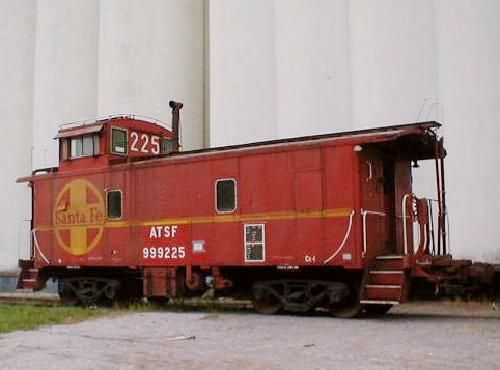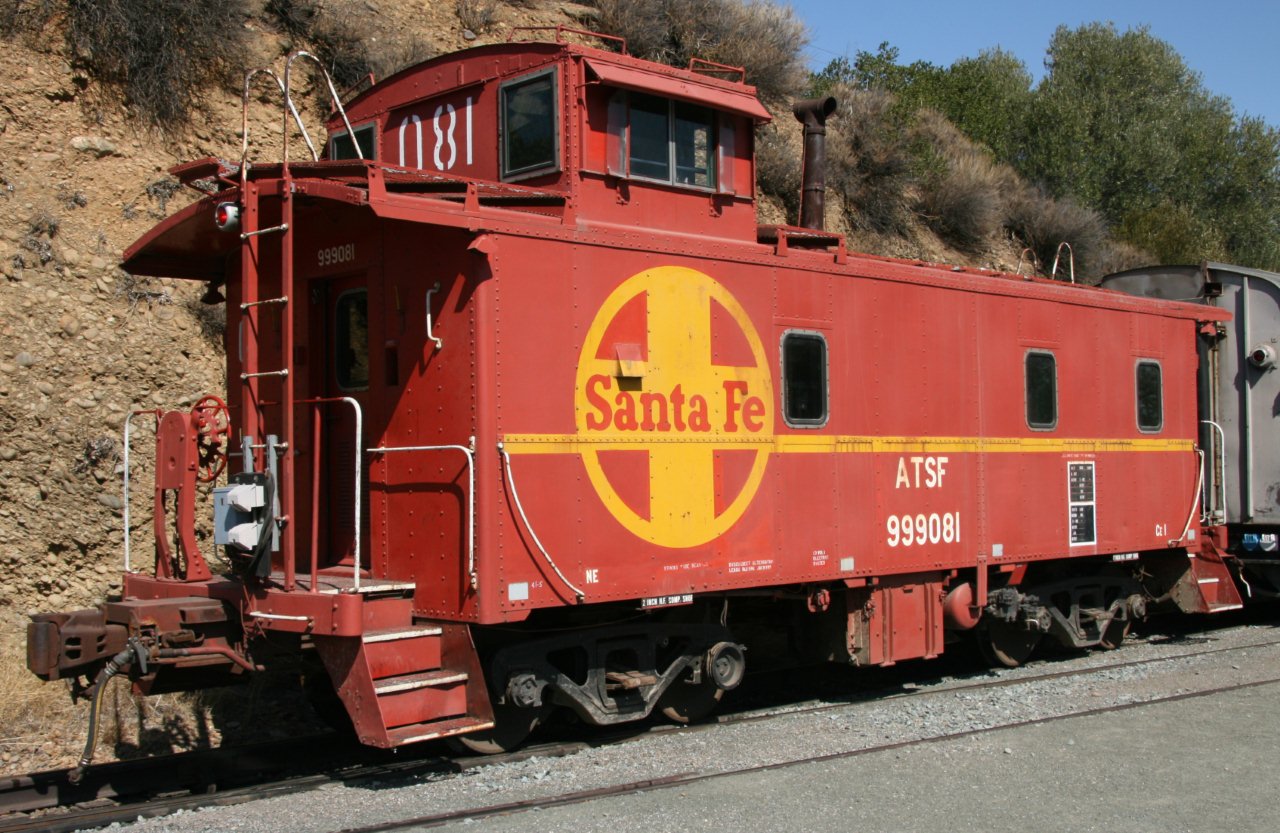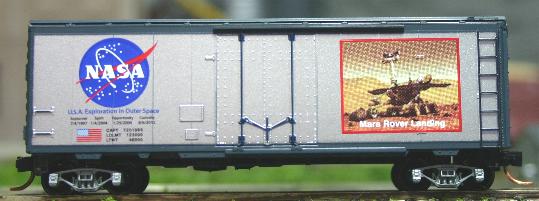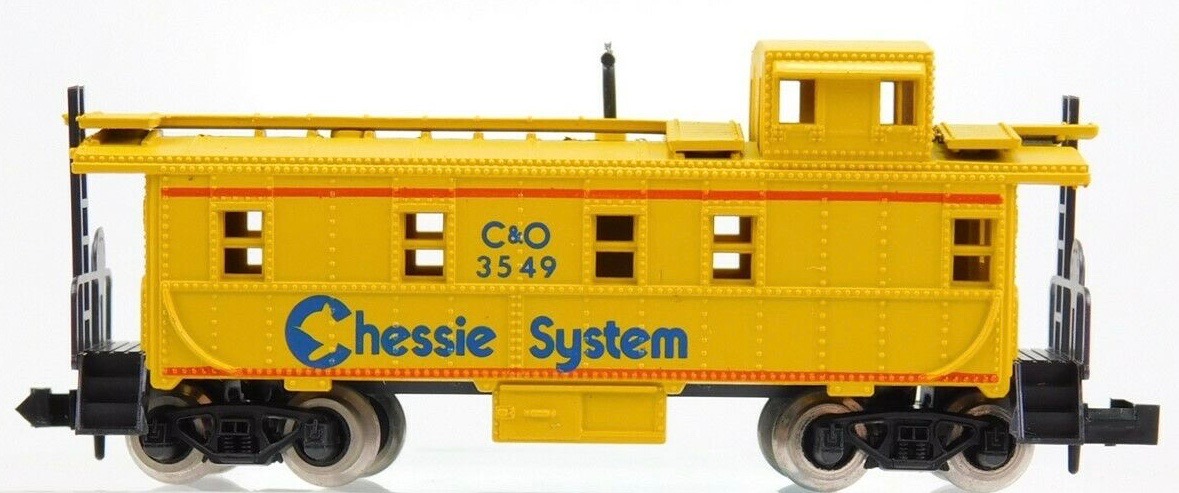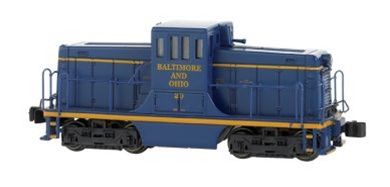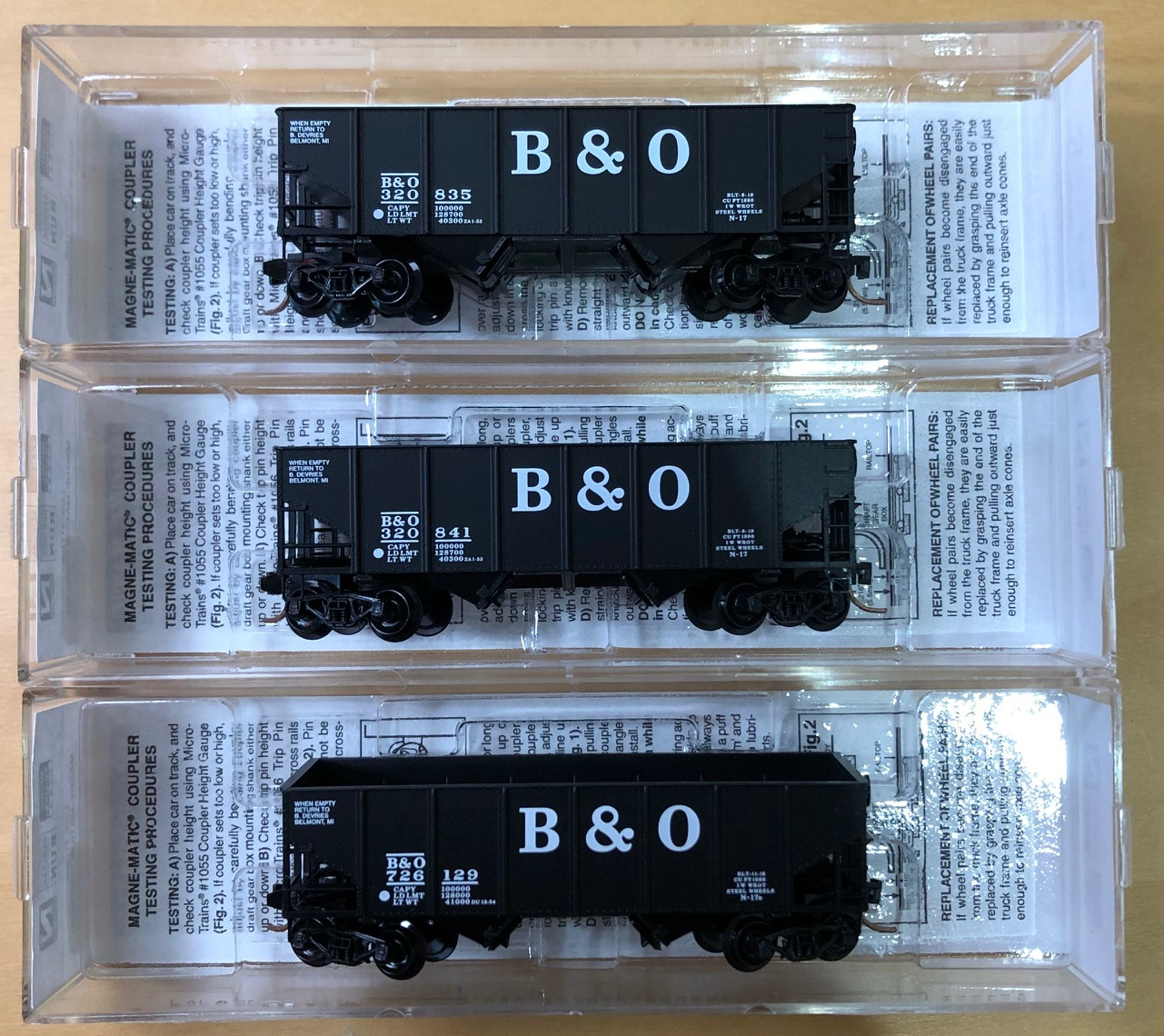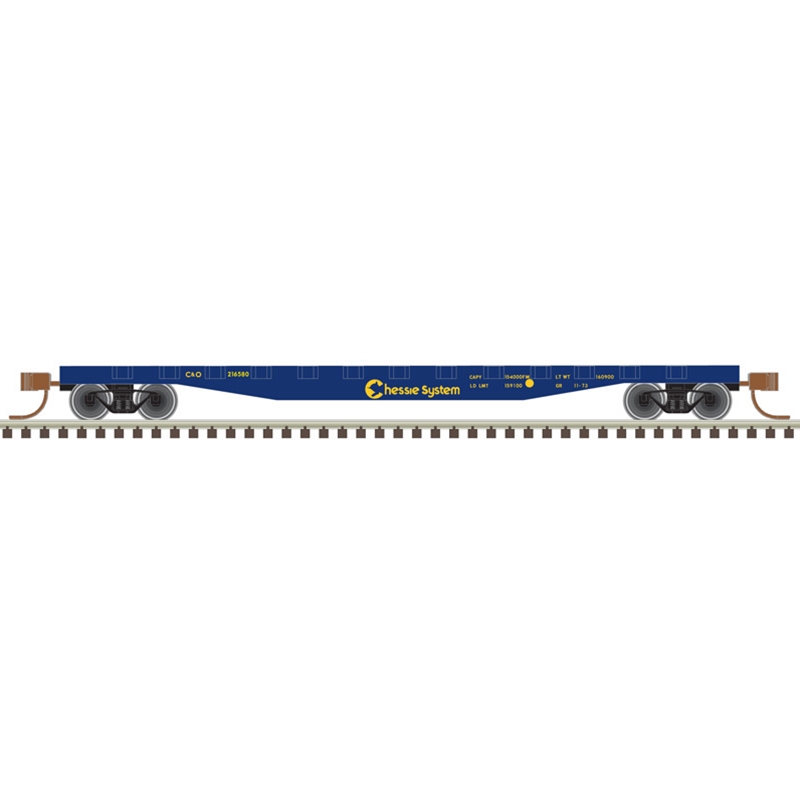History: The origins of the railroad caboose appear to date back to the 1840s when Nat Williams, a conductor of the Auburn & Syracuse Railroad (a later affiliate of the New York Central) became fed up with cramped and uncomfortable quarters to do paperwork (a common job of the conductor, whose responsibility is general oversight and control of a train, passenger or freight), which was usually done in either a free space of a passenger car or combine/baggage car. To fix this problem, Williams found an unused boxcar and using a simple box and barrel, as a seat and desk, set up shop in the car to do his duties. Not only did he find out he had plenty of room to work but also figured that he could use the unused space to store tools (flags, lanterns, spare parts, etc.) and other essentials to have on board whenever needed (such things become commonly stored on the caboose).
Perhaps the most striking feature ever applied to the railroad caboose was its cupola. According to the story, conductor T.B. Watson of the Chicago & North Western in the 1860s reportedly used a hole in a boxcar’s roof (which he was using as a caboose) to get a better vantage point of the train ahead. It is said that Watson was amazed by the view afforded from the position being able to not only see the train ahead but also from all sides, and to the rear as well. He apparently convinced C&NW shop forces to construct a type of open observation box onto an existing singe-level caboose with windows all around where one could sit and view their surroundings. The rest, as they say, is history and the common cupola was born.
Steel Cabooses replaced their wood-sheathed brethren after the second world war when the steel glut made the production and maintenance of steel cabooses far more efficient than wooden models. With the advancement of the End-of-Train device, cabooses slowly began to fall out of favor. However, in the early 2000’s, “shoving platforms” began to appear as a place to safely house a crew when a reverse move was required. Instead of riding on the side of a freight car, the crew member now has a safe place to stand, while guiding the rear of a reverse move.
Perhaps the most striking feature ever applied to the railroad caboose was its cupola. According to the story, conductor T.B. Watson of the Chicago & North Western in the 1860s reportedly used a hole in a boxcar’s roof (which he was using as a caboose) to get a better vantage point of the train ahead. It is said that Watson was amazed by the view afforded from the position being able to not only see the train ahead but also from all sides, and to the rear as well. He apparently convinced C&NW shop forces to construct a type of open observation box onto an existing singe-level caboose with windows all around where one could sit and view their surroundings. The rest, as they say, is history and the common cupola was born.
Steel Cabooses replaced their wood-sheathed brethren after the second world war when the steel glut made the production and maintenance of steel cabooses far more efficient than wooden models. With the advancement of the End-of-Train device, cabooses slowly began to fall out of favor. However, in the early 2000’s, “shoving platforms” began to appear as a place to safely house a crew when a reverse move was required. Instead of riding on the side of a freight car, the crew member now has a safe place to stand, while guiding the rear of a reverse move.
Railroad/Company: This set of items is comprised of more than one name. Please look at the component items for details on the specific roadnames and/or manufacturers.
Item Links: We found: 3 different collections associated with Rail - Rolling Stock (Freight) - Cupola, Steel
- Collection N Scale Model Trains: 704 different items.
- Collection Z Scale Trains: 85 different items.
- Collection HO Scale Model Trains: 4 different items.
Item created by: gdm on 2018-02-01 08:49:26. Last edited by gdm on 2020-08-06 08:06:05
If you see errors or missing data in this entry, please feel free to log in and edit it. Anyone with a Gmail account can log in instantly.
If you see errors or missing data in this entry, please feel free to log in and edit it. Anyone with a Gmail account can log in instantly.


